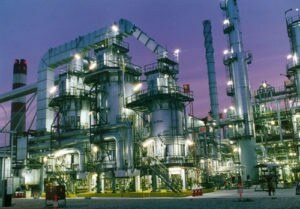Chemical and Plastic Sector Forewarns of Potential Collapse Due to Proposed Tariff Cuts
The chemical and plastic manufacturing sector in Pakistan has voiced serious concerns regarding the proposed tariff reductions in the FY2025-26 federal budget. Industry leaders caution that this action could precipitate the downfall of a sector that is integral to the nation’s industrial structure.
Industry representatives assert that removing import duties on chemicals and plastics during this phase of economic recovery would amplify existing structural issues. They anticipate that such a move would jeopardize over 300,000 jobs and undermine advancements in import substitution, tax collections, and export expansion.
They stated that the government’s suggested tariff adjustments, particularly the elimination of import duties on chemicals and plastics, have caused considerable apprehension among industry participants during this period of economic recovery.
According to industry figures, these adjustments could set off a rapid decline in a sector central to Pakistan’s industrial value chain. The chemical industry accounts for 3-4% of the GDP and supports more than 300,000 direct and indirect jobs. Annually, the sector facilitates import savings exceeding $7 billion, exports totaling $1.2 billion, and contributes over Rs. 700 billion in taxes and duties.
However, the sector is vulnerable to collapse because of fundamental disadvantages, such as elevated energy costs, expensive raw materials, high capital expenses, and significant tax burdens.
Gas energy costs for most captive-based chemical companies in Pakistan have nearly quadrupled over the past three years, making them uncompetitive compared to their counterparts in other nations.
Unlike its regional counterparts, Pakistan lacks a Naphtha or Ethane cracker, which is essential for manufacturing the raw materials used in the chemical and plastic industries. As a result, Pakistani producers are forced to depend on imports from distant locations, incurring substantial freight and storage expenses that widen the cost disparity.
Compounding this issue is a corporate tax rate of approximately 37%, significantly higher than the 20-25% averages seen in countries like Vietnam, Bangladesh, and India. Even after recent interest rate decreases, the cost of capital remains excessively high due to Pakistan’s sovereign country risk premium.
Furthermore, the absence of industrial infrastructure compels manufacturers to independently finance and build essential facilities like water treatment, effluent management, and backup power systems, increasing capital expenditures by an estimated 25% compared to regional norms.
Despite these obstacles, listed companies within the sector have collectively invested Rs. 100 billion in the last 3 years to enhance capacity and boost operational effectiveness.
Industry participants have emphasized that lowering import tariffs at this crucial moment could destabilize Pakistan’s delicate industrial ecosystem. They contend that the argument for tariff reduction rests on the theory that it will initiate Pakistan’s shift towards export-oriented growth.
Domestic producers have urged the government to uphold the current tariff structure for FY2025-26 and commence comprehensive consultations with various stakeholders before implementing any long-term modifications. They also noted that goods imported for export purposes are duty-free under the “Export Facilitation Scheme,” meaning tariffs do not impact exports.
With manufacturers dealing with structural challenges and making significant contributions to employment, tax income, and import substitution, they concluded that policy choices should aim to promote stability while considering competitiveness.



Comments (0)
No comments yet. Be the first to comment!
Leave a Comment